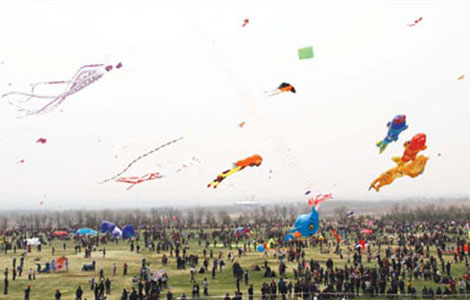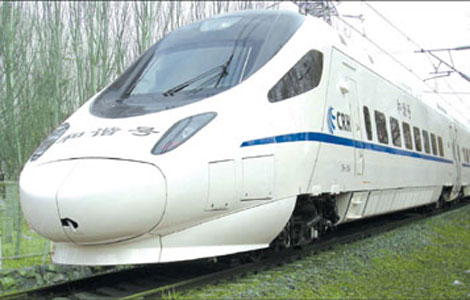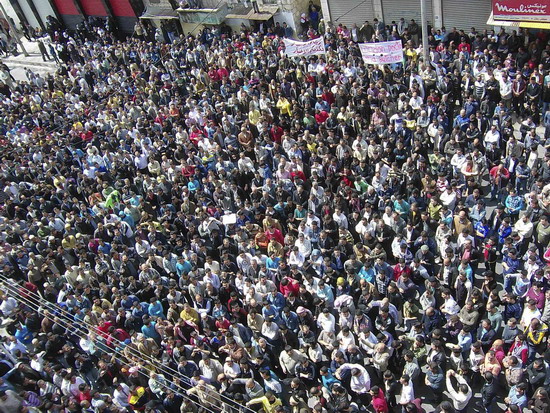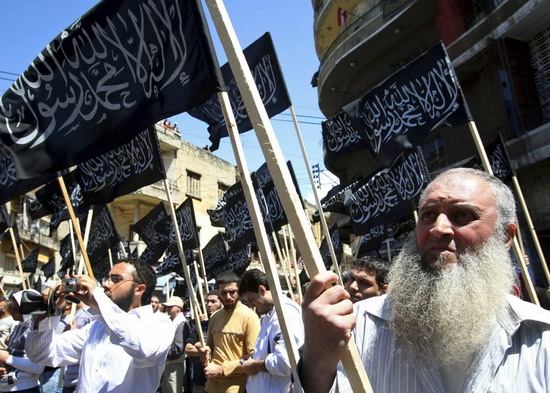Politics
120 dead after 2 days of unrest in Syria
Updated: 2011-04-24 09:12
(Agencies)
|
|
BEIRUT -- Syrian security forces fired on funeral processions that drew tens of thousands Saturday, one day after the bloodiest crackdown so far in the uprising against President Bashar Assad. The shootings pushed the two-day death toll to more than 120 and two lawmakers and a religious leader resigned in disgust over the killings.
The resignations were a possible sign of cracks developing in the regime's base in a nation where nearly all opposition figures have been either jailed or exiled during the 40-year dynasty of the Assad family.
"I cannot tolerate the blood of our innocent sons and children being shed," Sheikh Rizq Abdul-Rahim Abazeid told The Associated Press after stepping down from his post as the mufti of the Daraa region in southern Syria.
The lawmakers, Nasser Hariri and Khalil Rifai, also are from Daraa, which has become the epicenter of the protest movement after a group of teenagers were arrested there for scrawling anti-regime graffiti on a wall in mid-March.
Since then, the relentless crackdown on demonstrations has only served to invigorate protesters whose rage over the bloodshed has all but eclipsed their earlier demands for modest reforms. Now, many are seeking Assad's downfall.
Each Friday, growing numbers of people in cities across the country have taken to the streets despite swift attacks from security forces and shadowy pro-government gunmen known as "shabiha."
Ammar Qurabi, the head of Syria's National Organization for Human Rights, said 112 people were killed Friday and at least 11 on Saturday. Friday was by far the deadliest day of the uprising, with security forces beating back protesters with bullets, tear gas and stun guns.
The heavy security crackdown on Friday and Saturday came after Assad warned a week ago that any further unrest would be considered "sabotage" after he made the gesture of lifting long-hated emergency laws, which gave security forces almost blanket powers for surveillance and arrest.
Assad has blamed most of the unrest on a "foreign conspiracy" and armed thugs trying to sow sectarian strife. Fears of sectarianism resonate in Syria, with the dangers of fractured societies so apparent in neighboring Iraq and Lebanon.
Besides the government crackdown, Assad has been trying to defuse the protests by offering a series of concessions: granting citizenship to thousands among Syria's long-ostracized Kurdish minority, firing local officials, releasing detainees and forming a new government. The recent lifting of emergency laws once had been a top demand.
But many protesters said the concessions have come too late and that Assad does not even deserve the credit because the protest movement is forcing his hand.
The increasing death toll also has brought international condemnation.
In Washington on Friday, President Barack Obama condemned the latest use of force by Syria against anti-government demonstrators and said the regime's "outrageous" use of violence must "end now."
Syria's state TV quoted an unnamed official as saying Damascus "regrets" Obama's comments.
"They are not based on an objective vision," the official said, without elaborating.
|
|
E-paper

Blowing in the wind
High-Flyers from around the world recently traveled to home of the kite for a very special event.
Image maker
Changing fortunes
Two motherlands
Specials

Models gear up car sales
Beauty helps steer buyers as market accelerates.

Urban breathing space
City park at heart of Changchun positions itself as top tourism attraction

On a roll
Auto hub Changchun also sets its sight on taking lead in railway sector


